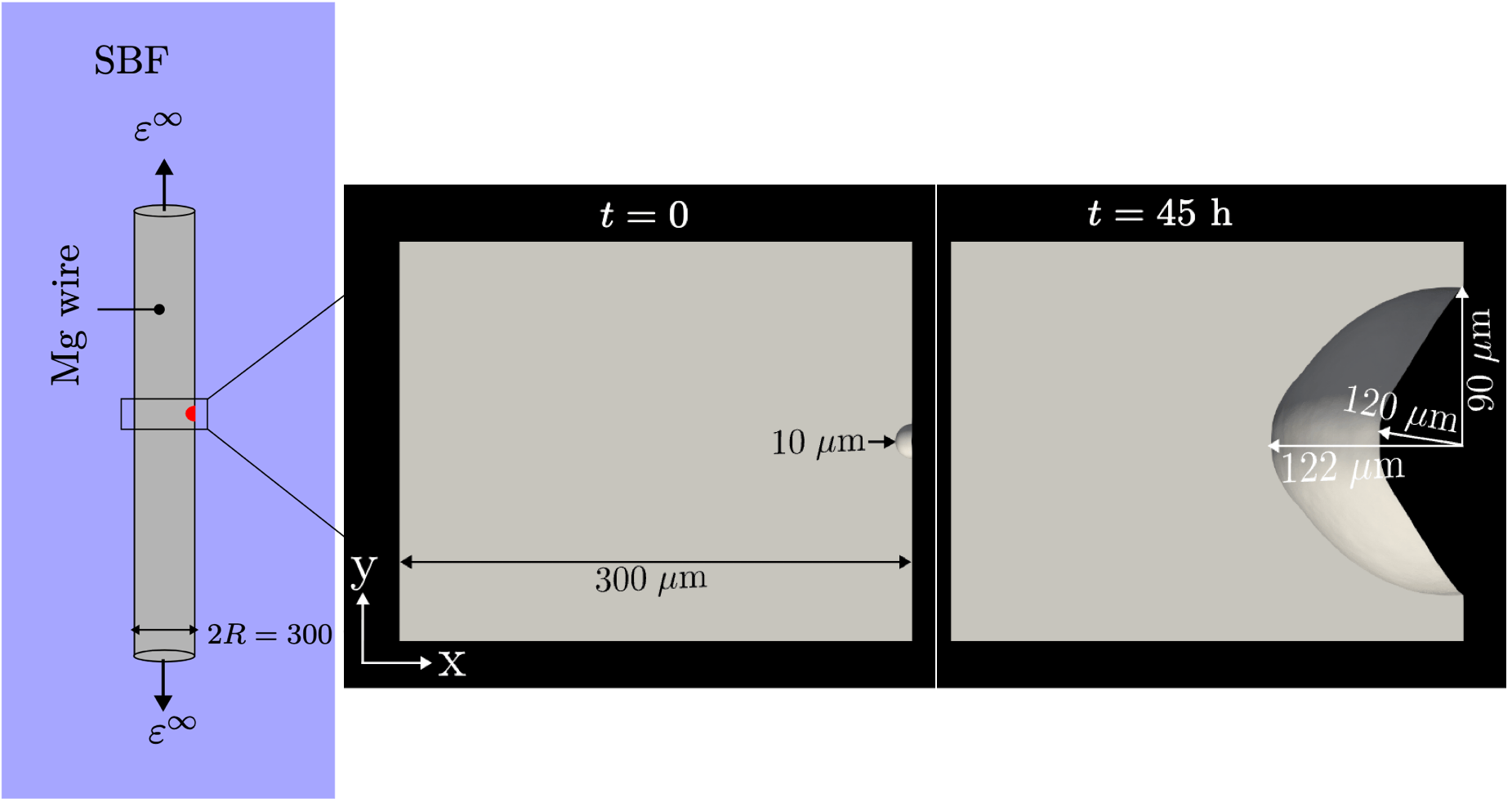Our research focuses on the fundamental mechanisms of Mg alloy biodegradation and the computational modelling of corrosion-resistant coatings. We aim to develop scalable, physics-based models capable of simulating the evolving corrosion interface, a significant challenge in traditional approaches. By leveraging phase-field modelling, we capture the interplay of electro-chemo-mechanical phenomena, offering insights into how microstructural features and coating performance influence corrosion behaviour.

A key aspect of our work is developing predictive models for corrosion-resistant coatings, such as micro-arc oxidation (MAO) and electrolytic deposition (ED), to complement experimental methods. These models enable virtual testing and optimisation of coatings, bridging the gap between theoretical understanding and practical applications.
This research provides a framework for advancing the design of Mg-based implants, with a focus on understanding and controlling their degradation processes. By addressing these fundamental challenges, we aim to contribute to the broader field of material science and accelerate the development of next-generation biodegradable implants.
